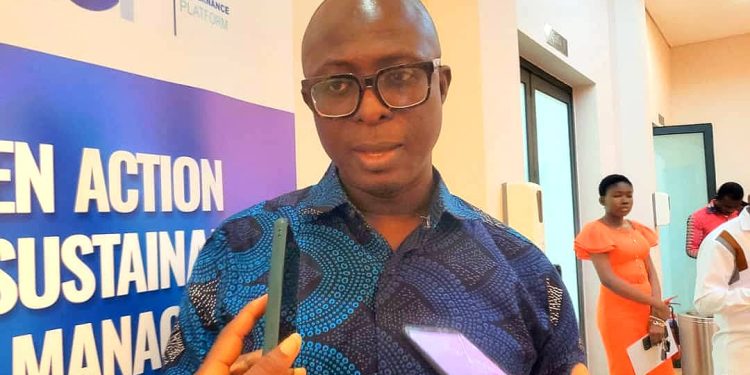Failure to Enforce Mining Laws Driving Food Insecurity, Says EGP’s Abdul Karim Mohammed
Coordinator of the Economic Governance Platform (EGP), Abdul Karim Mohammed, has warned that illegal mining activities, popularly known as galamsey, are posing an existential threat to Ghana’s food security due to the growing overlap between farmlands and mining concessions.
Speaking during a joint X Space discussion organised by NorvanReports, the Economic Governance Platform (EGP) and the Ghana Anti-Corruption Coalition (GACC) on the theme “Farming at the Crossroads: How Galamsey Threatens Ghana’s Farmlands and Food Security”, Mr Mohammed described the situation as a “conflict of geographies.”
“We are experiencing a conflict of geographies because we have farmlands overlapping with lands that are being used for mining. The very land that farmers need for food production has been subjected to illegal mining activities, making it unavailable and in many cases unusable for agriculture,” he stressed.
He noted that galamsey operations have destroyed vital topsoil and subsoil layers critical for crop cultivation, thereby undermining food production. Ghana’s failure to enforce its mining laws, he added, has worsened the problem.
“Elsewhere, you cannot just move an excavator onto land and begin mining because you think there are minerals beneath. But in Ghana, our laws are observed more in breach than in compliance,” he said.
Mr Mohammed further pointed to systemic weaknesses at the Minerals Commission, citing a lack of decentralisation and monitoring, as well as political interference in illegal mining operations. He argued that politically exposed persons have compromised regulatory agencies, local authorities, and security agencies, making law enforcement ineffective.
He highlighted the economic implications of illegal mining on agriculture, cocoa production, and forex earnings, noting that Ghana risks losing its global position as the world’s second-largest cocoa producer to Ecuador.
Citing World Food Organisation data, he revealed that about 2.2 million Ghanaians, representing 7.4 percent of the population, were classified as food insecure between March and May this year.
“If 7.4 percent of voters were unable to participate in a general election, it would be declared a serious national security matter. Why then do we not see food insecurity affecting 2.2 million citizens as an equally urgent national security issue?” he quizzed.
Mr Mohammed called for stronger enforcement of mining laws, targeting of financiers behind illegal mining operations, and a more decisive state response, including the possibility of declaring a national state of emergency on galamsey.








